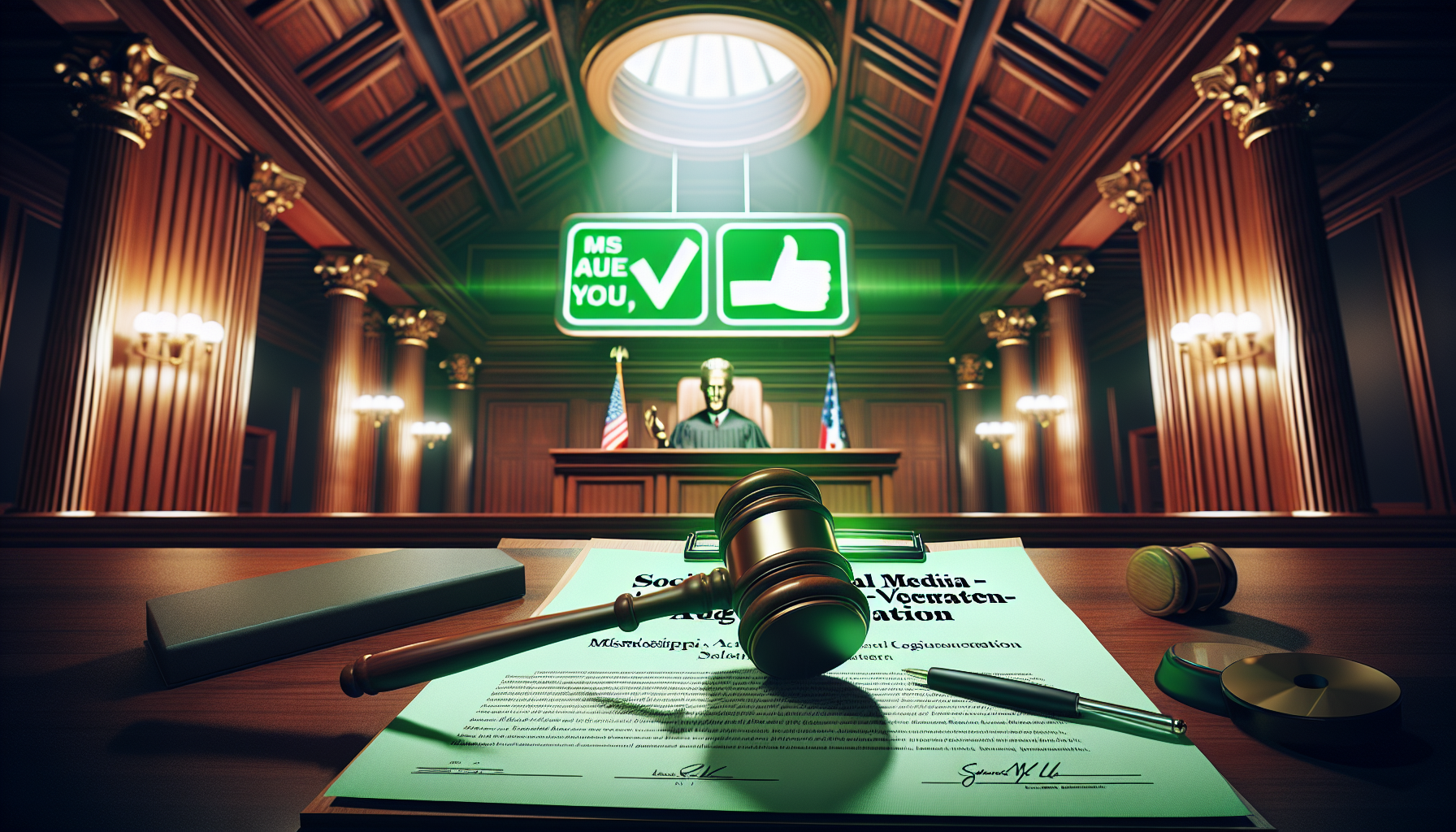
Supreme Court Chooses Not to Intervene in Mississippi’s Age-Verification Statute
Overview of Age-Verification Statutes
In recent times, several states have enacted age-verification statutes designed to regulate access to social media for underage users. These statutes obligate users to confirm their ages prior to using social media platforms, shifting the responsibility to social networks to shield minors from harmful content. The Supreme Court recently opted not to intervene in Mississippi’s age-verification statute, igniting considerable debate and legal disputes.
The Mississippi Statute and Its Consequences
Mississippi’s law requires age verification for all social media participants and necessitates parental approval for minors. This legislation has faced challenges from NetChoice, an organization representing major technology companies such as Facebook, Instagram, Snapchat, and YouTube. NetChoice contends that the statute violates First Amendment rights by limiting information access.
Legal Conflicts and Judicial Decisions
A district court first ruled against the Mississippi law, halting its enforcement. However, the 5th Circuit Court of Appeals removed this temporary injunction, allowing the statute to be enforced. Justice Brett Kavanaugh, in rejecting a request to cancel the stay, conceded that NetChoice is likely to prevail on the basis of its First Amendment claim. He remarked that the balance of harms and equities did not currently favor NetChoice, resulting in the law’s temporary implementation.
Wider Scope of Age-Verification Statutes
Mississippi is not the sole state attempting to regulate social media usage for minors. Other states, such as Arkansas and Florida, have experienced federal judges blocking comparable laws. At the same time, Texas and Nebraska are developing their own regulations. The focus of these statutes varies, with some aimed at adult content providers and others addressing general social media usage.
The Role of NetChoice
NetChoice is pivotal in contesting these state laws, championing the defense of First Amendment rights. Paul Taske, co-director of the NetChoice Litigation Center, conveyed optimism that the organization will eventually prevail in safeguarding these rights, despite procedural setbacks.
Conclusion
The Supreme Court’s choice not to get involved in Mississippi’s age-verification statute underscores the persistent legal conflicts surrounding social media governance. As states keep proposing and implementing these laws, the discourse surrounding First Amendment rights and the safeguarding of minors online continues to be a divisive topic.
Q&A Section
Q1: What is the principal argument against Mississippi’s age-verification law?
A1: The principal argument is that it infringes upon First Amendment rights by restricting access to information and imposing excessive burdens on social media platforms.
Q2: What function does NetChoice serve in these legal disputes?
A2: NetChoice represents prominent technology firms and contests state laws that it perceives as violating First Amendment rights.
Q3: How have other states dealt with age-verification statutes?
A3: States such as Arkansas and Florida have had their laws blocked by federal judges, while Texas and Nebraska are formulating their own regulations.
Q4: What did Justice Kavanaugh indicate regarding the potential success of NetChoice?
A4: Justice Kavanaugh indicated that NetChoice is likely to succeed on the basis of its First Amendment argument.
Q5: Why did the Supreme Court opt not to intervene in the Mississippi situation?
A5: The Supreme Court opted not to intervene because NetChoice failed to convincingly demonstrate that the balance of harms and equities favored it at this juncture.